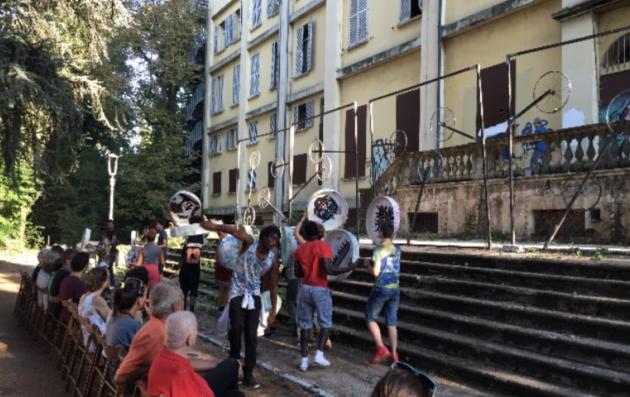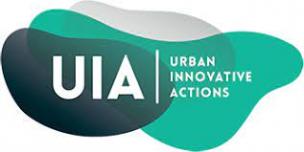Summary
Salus Space will provide a multi-purpose living and working environment for 28 families up to half of whom will be migrants or refugees.
The project seeks to overcome the emergency approach in the refugees reception model and find new sustainable solutions, integrated into the social and economic framework. Furthermore it aims to prevent the conflicts and the perception of migrants and refugees as an economic and social burden, to fight the urban and social decay, caused by the economic crisis, to foster an open intercultural society, based on the generative welfare model and solidarity, by enhancing reciprocity between refugees and citizens and knowledge contamination and to help address demographic changes: ageing population, low birth rate, migration of young people.
The innovative solution
The project proposes to house 28 families of which roughly half will be from a migrant background in a purpose-built facility on the former Villa Salus hospital site on the periphery of the city The project will create a working community, with a generative welfare approach. The whole project is based on a collaborative approach between partners and once launched will involve collaborative management between the new community at Salus space and the City. The site will also play host to a Think Tank focusing on the inclusive economy.
A collaborative and participative work
The project has a wide partnership engaging many local actors. The partners range from specialist housing providers to a range of social cooperatives that work with specific groups – for example with migrant women. The work the city has done with the partnership is one of the most innovative aspects of the project. Together they have created a charter of values and a management plan for the site. The evolution of the project is a genuine co-creation.
The project has pioneered an approach to participative evaluation by training citizens in evaluation techniques. Citizen journalists, mostly from the nearby district of Savena have also been trained to write blogs and document the progress of the project.
The impact and results
The project launches for real in January 2021. The first four years have been taken up with the demolition of the original hospital and the construction of permanent living spaces, meeting spaces and three temporary structures. Up until now working on other sites, Salus Space has been able to provide training activities in theatre skills and horticulture for migrants. The partnership have also developed a collaborative management plan for the new facility and develop a charter of values with partners.
The new buildings at Salus Space will be officially opened in January 2021. Soon after the first cohort of tenants can move in for a 24-month residential period. The new site will host 28 families, up to half of whom will be from a migrant background, the rest with an Italian background. Activities on the site will include catering, horticulture, theatre, business creation as well as a think tank on social inclusion. The idea is to create a dynamic learning, working and living environment aimed at accelerating the integration process.
Why this good practices should be transferred to other cities?
The project presents an interesting approach to migrant integration by creating a co-living and working space on the urban fringe using a former derelict hospital site. Each family living in Salus Space will have their own living space but will also participate in a range of work, cultural and leisure activities on the site that will also be a welcoming space for visitors. Salus Space will be a living community.
For other European cities the project will be a live demonstration of how to organise new approaches to migrant integration. The governance and management arrangements are particularly interesting because the whole approach has been developed in a collaborative way with partners from the city including social cooperatives and specialist agencies. The project offers an opportunity to see a project in its early stages of implementation wrestling with real issues in real time.
Salus Space is also featuring in a Horizon 2020 project for innovative agriculture which is led by the University of Bologna and is part of a second H2020 bid.


